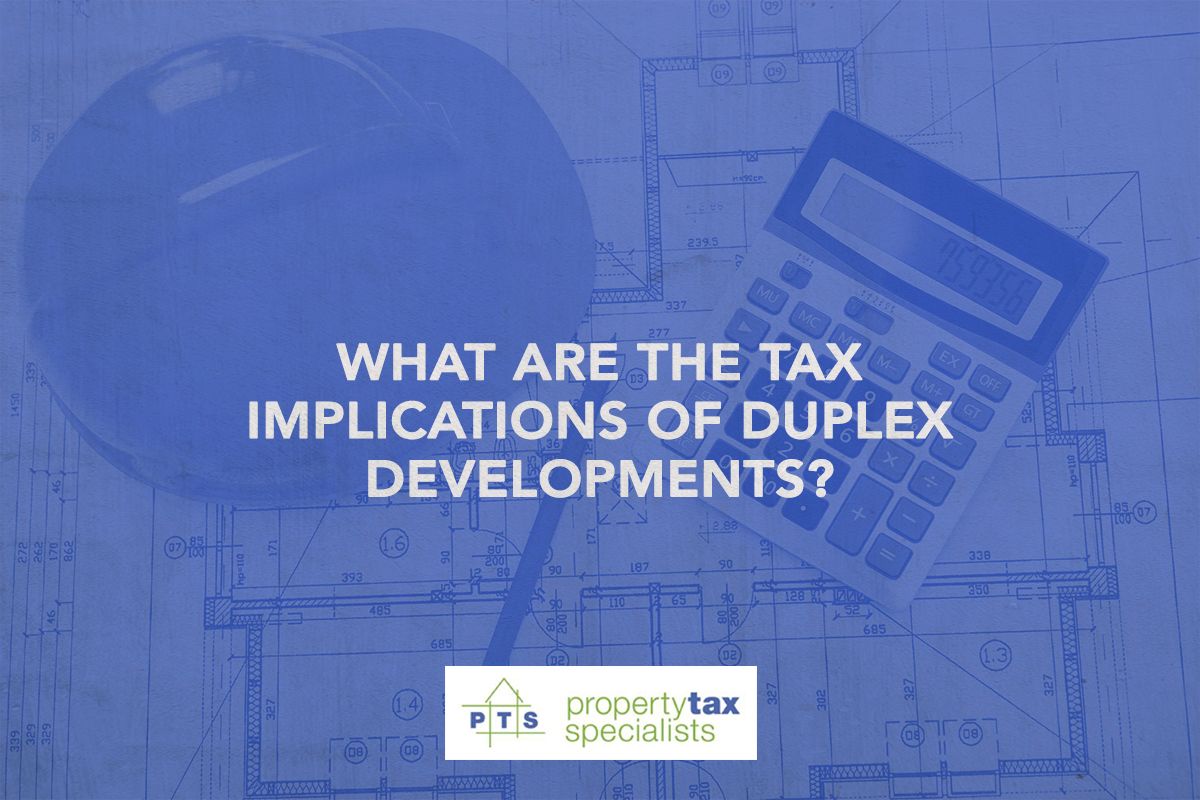What are the Tax Implications of Duplex Developments?
Duplex properties are growing in popularity across Australia, especially in major cities like Sydney and Melbourne.
If you are considering build and hold or buy and hold strategy, for property investors and developers, duplexes can provide attractive opportunities to maximise returns. However, these dual-occupancy dwellings also come with unique tax considerations.
Understanding the tax implications is crucial for any investor when evaluating the true net rental yields and feasibility of duplex projects. So, this guide will explore the key tax rules, deductions, and strategies to be aware of if you own, are constructing, or are financing a duplex property.
Tax Deductions Available for Duplex Owners
One of the main financial benefits of owning an investment property like a duplex is being able to claim tax deductions on associated expenses. Tax deductions allow you to reduce your taxable rental income, which in turn lowers what you need to pay in tax.
Claiming a tax deduction essentially means you can subtract eligible expenses from your assessable rental income before calculating tax. This reduces your taxable income because those costs are seen as expenses associated with generating that rental income.
Some key things to understand about tax deductions for duplex properties include:
- You can only claim deductions for expenses related to earning rental income on the property
- Eligible rental property expenses are fully deductible in the same tax year they are incurred
- You must keep records, like receipts, to prove all deduction claims
Knowing exactly what duplex expenses are tax deductible is key.
Interest and Loan Fees
Interest payments on loans used to purchase or construct the duplex are generally tax deductible. This also includes any loan establishment fees, legal fees for the loan, and mortgage insurance premiums. However, interest on borrowings for a private residence is not deductible.
Property Management and Maintenance
Any fees paid to real estate agents for property management services are deductible, as are the costs of repairs and maintenance to the property. This covers things like plumbing, electrical work, cleaning, and gardening.
Depreciation Deductions
You can claim depreciation on the building structure itself and assets within the duplex like ovens, carpets, blinds, etc.
Quantity surveyor reports, such as tax depreciation schedules, help maximise these claims.
Utility Expenses
If you, as the owner, are responsible for paying the water rates, charges for gas, and electricity, the Australian Tax Office (ATO) classifies these as deductible expenses too. A portion of internet and phone expenses are also deductible if they relate to managing the property.
Insurance Premiums
Taking out landlord insurance for the duplex is a deductible expense. You can also claim deductions for insurance covering buildings, contents, public liability, and loss of rental income.
Council Rates and Land Taxes
Council rates, strata levies, and land taxes imposed on the property are deductible. However, the land tax threshold in some states means not all duplex owners pay this.
Capital Works Deductions
The construction costs of a new duplex can be deducted at 2.5% each year for 40 years under capital works provisions. Renovation costs can also fall under this deduction.
Other Deductible Costs
Other expenses like the interest component of lease payments, and advertising for tenants, and management fees for agents are also deductible. Body corporate fees apply for strata duplexes.
Capital Gains Tax on Duplex Developments
Capital gains tax (CGT) is one of the primary tax implications for duplex developments in Australia. When you construct or purchase a duplex for investment purposes (producing rental income) and later sell it, you may be liable for CGT on any profit.
CGT is applied at your income tax rate for individuals or the company tax rate for companies. For properties held longer than 12 months, you may be eligible for a 50% CGT discount as an individual. This reduces your taxable gain by half.
If you live in one half of the duplex and rent the other half out, CGT may only apply to 50% of the property when you sell, as your half could be exempt as your primary place of residence.
Unfortunately, however, you will need to keep in mind that companies do not receive any CGT discounts.
Tax Tips to Minimise CGT:
- Hold the property for over 12 months to access the 50% CGT discount as an individual
- Use capital losses from other investments to offset capital gains
- Improve the property to increase your cost base and lower your taxable capital gain out.
Land Tax Considerations
Land tax is an annual state tax levied on the total taxable value of land owned. In some states, like NSW, duplexes fall under the primary place of residence land tax exemption. In other states, like Victoria, land tax applies to both units separately if they are rented.
The taxable threshold, rates, and exemption depend on your state, and what the property is used for so you need to ensure you are familiar with your obligations and the potential avenues to minimise land tax.
Key Takeaways
Purchasing or developing a duplex property investment comes with a range of tax implications. But being aware of the taxation considerations and implementing strategic ownership structures and deductions from the outset will put you in a better position to potentially maximise returns and cash flow.
Some key takeaways include:
- There are numerous tax deduction opportunities for duplex investors to reduce taxable rental income. Interest, maintenance, depreciation, and other costs can be claimed.
- You’ll likely have to pay CGT when you sell your duplex, but there are certain expectations that may apply if you time the sale right.
- Land tax should be modelled for duplex investments to avoid surprises.
- Getting professional tax planning and accounting advice is crucial when investing in duplex properties.
If you are considering developing or purchasing a duplex property in Australia, the team at Property Tax Specialists can help you minimise your tax obligations and liabilities. From providing tailored tax advice to preparing and lodging your tax returns, our expert property accountants support smart tax planning and compliance.
Contact us today to discuss your duplex tax position.
Disclaimer
Please note that every effort has been made to ensure that the information provided in this guide is accurate. You should note, however, that the information is intended as a guide only, providing an overview of general information available to property buyers and investors. This guide is not intended to be an exhaustive source of information and should not be seen to constitute legal, tax or investment advice. You should, where necessary, seek your own advice for any legal, tax or investment issues raised in your affairs.


